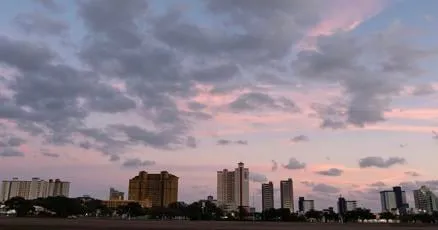MYRTLE BEACH -- Fearful the city is losing millions in tourism revenue, Myrtle Beach leaders could permanently prohibit some property owners from converting their hotel rooms into apartments.
Myrtle Beach City Council temporarily stopped property owners from switching short-term rentals to long-term rentals for all property east of Kings Highway in April. The ban meant owners could not get a new business license to rent units for more than 90 days at a time. Now the ban could become permanent. City Council is scheduled to discuss short-term rental regulations on Dec. 3 and vote on a new policy.
"The underlying premise for the moratorium is that we need to protect our tourism industry," Assistant City Manager Brian Tucker said. "Logically, the fewer hotel rooms you have, the fewer people you have coming ... So, our entire economy is built around having a certain number of people here to vacation and visit and have fun. When we don't have the hotel rooms to support those people, the private businesses are impacted."
Tucker said it's impossible to put a figure on private business losses but it could be 20 to 50 times more than what the city loses from those conversions.
The public revenue loss is $7.6 million in taxes and fees if 821 rooms switch from hotel rooms to apartments, according to a study commissioned by the city. That study found that 48 jobs would be lost if those rooms stopped being short-term rentals.
The city's Planning Commission recently recommended additional changes to Myrtle Beach's short-term rental rules, including prohibiting any short-term rental building with more than two units from being converted to a long-term rental.
"That would also apply to buildings that had been used as a short-term rental in the past," Kelly Mezzapelle, a senior planner with the city, said.
She pointed out that current business licenses for long-term rentals will not be affected by these changes.
"It's the switching the city is targeting," she added.
The code changes were sparked nearly two years ago when landowners began approaching city staff about changing property uses ranging from mom-and-pop hotels to larger complexes.
"We have a lot of old, dilapidated properties all throughout this area," Planning Commissioner Zeb Thomas III stated during a meeting. "They're not spending money redeveloping them... instead fixing up existing buildings hoping for big payouts."
Mezzapelle mentioned that older hotels continuously used as such are grandfathered from code changes unless they remodel or change use substantially.
Zoning Administrator Charles Rowe noted that determining original construction purpose involves checking features like sprinkler systems which indicate initial use as short-term rentals.
Acknowledging workforce housing challenges over years; Tucker emphasized dignified housing solutions over minimal conversions: "If you're living in a hotel room full time... Housing needs dignity beyond mere affordability."
